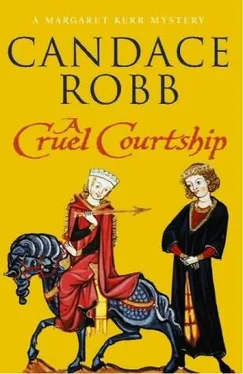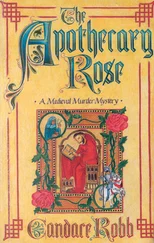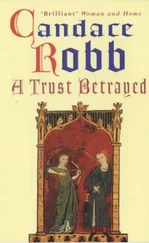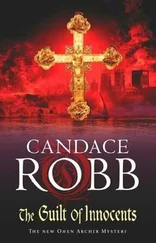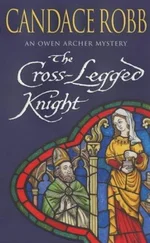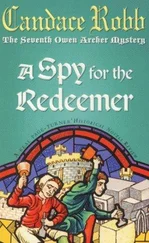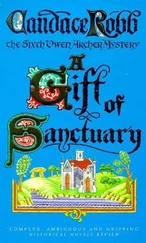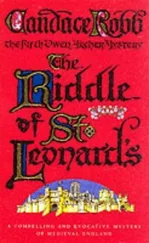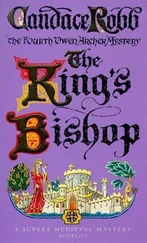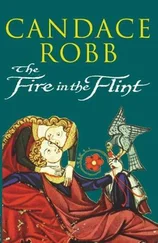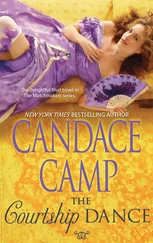Candace Robb - A Cruel Courtship
Здесь есть возможность читать онлайн «Candace Robb - A Cruel Courtship» весь текст электронной книги совершенно бесплатно (целиком полную версию без сокращений). В некоторых случаях можно слушать аудио, скачать через торрент в формате fb2 и присутствует краткое содержание. Год выпуска: 2010, ISBN: 2010, Издательство: Random House, Жанр: Исторический детектив, на английском языке. Описание произведения, (предисловие) а так же отзывы посетителей доступны на портале библиотеки ЛибКат.
- Название:A Cruel Courtship
- Автор:
- Издательство:Random House
- Жанр:
- Год:2010
- ISBN:9781446439234
- Рейтинг книги:3 / 5. Голосов: 1
-
Избранное:Добавить в избранное
- Отзывы:
-
Ваша оценка:
- 60
- 1
- 2
- 3
- 4
- 5
A Cruel Courtship: краткое содержание, описание и аннотация
Предлагаем к чтению аннотацию, описание, краткое содержание или предисловие (зависит от того, что написал сам автор книги «A Cruel Courtship»). Если вы не нашли необходимую информацию о книге — напишите в комментариях, мы постараемся отыскать её.
A Cruel Courtship — читать онлайн бесплатно полную книгу (весь текст) целиком
Ниже представлен текст книги, разбитый по страницам. Система сохранения места последней прочитанной страницы, позволяет с удобством читать онлайн бесплатно книгу «A Cruel Courtship», без необходимости каждый раз заново искать на чём Вы остановились. Поставьте закладку, и сможете в любой момент перейти на страницу, на которой закончили чтение.
Интервал:
Закладка:
Candace Robb
A Cruel Courtship
‘Was ever woman in this humour wooed?
Was ever woman in this humour won?
I’ll have her, but I will not keep her long.’
Richard III, Act I, scene ii, ll. 228-230‘… oftentimes, to win us to our harm,
The instruments of darkness tell us truths,
Win us with honest trifles, to betray’s
In deepest consequence.’
Macbeth, Act I, scene iii, ll. 123-126PROLOGUE
For this execution the gallows in the bailey of Stirling Castle would not suffice; a special one was set up in the market square so that the townsfolk would find it difficult to avoid. Huchon Allan was a traitor. He’d been caught about to ford the River Forth with more weapons than one man could reasonably use — William Wallace and Andrew Murray were gathering their Scottish rabble on the far side of the river and the English accused Huchon of intending to take the weapons to them. His hanging would serve as a warning to the Scots of Stirling that King Edward of England would not turn the other cheek.
Johanna had never known such fear as she suffered now, nor such a debilitating guilt. She did not doubt the righteousness of her cause, to return King John Balliol to the throne that King Edward of England had stolen, but the danger for her and for her lover, Rob, had never been so real, so clear. She knew from Rob, a soldier at the castle and her unwitting informant, that the English were furious about the raiding of Inverness and Dundee by Murray and Wallace, and that they were expecting reinforcements soon. They were abandoning their earlier efforts to keep peace in the town, convinced that their generosity had simply bred rebellion.
Johanna had much to tell Archie, the lad who carried the information she coaxed from Rob down to someone in the valley who passed it on to Murray’s and Wallace’s men. But she’d not seen the lad in days. When she’d first heard that a traitor had been caught she’d feared for Archie, or for Rob, and had been giddy with relief that it was Huchon. But her relief had not lasted, for she knew and liked Huchon and his family, and his capture brought home to her the mortal danger in which she was placing Rob. She worried even more about Archie and what kept him away of late. She’d found it difficult to trust him; in fact she’d urged Father Piers to find someone else to carry the messages. The priest had argued that there was no one else foolhardy enough to take the risk, and they needed someone small and known to be a forager, a lad folks were accustomed to seeing everywhere.
For two days Johanna had been unable to keep anything down, so real had the danger of her activity become to her. Yet on the day of the hanging she could not stay away from the square. She arrived just in time to see Huchon’s parents, Ranald and Lilias, led from their house by soldiers. The expressions on the Allans’s faces broke Johanna’s heart. Only when they were in their designated position at the head of the small group facing the galley was their son led from the kirk at the top of the street and down towards them, paced by a mournful drumming.
‘His betrothed has been sent away to kin in the highlands,’ said the woman beside Johanna. ‘She should have been here.’
‘Hush, Mary, she’s too young to witness such a thing,’ said another woman.
Johanna had not known Huchon was betrothed, but she did not ask to whom, trusting no one now. She said a prayer for the young woman, pitying her for such a horrible end to her betrothal.
Peter, a young, handsome, well-spoken English soldier, read the accusations against Huchon. His manner chilled Johanna, for he read Huchon’s death sentence with indifference, as if it meant nothing to those watching.
Suddenly several things happened at once. As the soldiers tied Huchon’s hands behind his back and covered his eyes, his mother lunged towards Peter and grabbed his hand screaming, ‘What right have you to wear that? Thief!’
Her husband grabbed Lilias at almost the moment that Huchon dropped, his body doing a ghastly jig, his face darkening.
Johanna fell to her knees, hiding her own face in her hands. Dear God, may he rest in peace , she whispered over and over to shut out the horrible screams of Lilias Allan.
1
Perth, end of August, 1297
As the summer wore on the presence of King Edward of England’s army in Perth began to fray the tempers of the townsfolk. Women increasingly complained of the rude behaviour of the soldiers, and theft was rampant, the thieves aware of the backlog of more serious crimes to be presented at gaol delivery sessions than their small felonies. The walls that the army had reinforced and extended now surrounded the town on three sides, cutting off the merchants’ access to their warehouses from the ships in the canal. The English might have compensated for some of the inconvenience by allowing general access along the riverfront on the east — it would have quieted tempers and cost them little in security. Instead they restricted access from the River Tay, allowing only one ship per day to offload. Now ships might idly sit at anchor in the river for days, impeding traffic and slowing trade to almost a standstill. Even though the fighting in Dundee at the mouth of the Tay made shipmen hesitant to sail upriver, some still did, and to the townsfolk the restrictions were symbolic of the potential loss of freedom if Edward Longshanks was not defeated.
For several mornings now the English soldiers had found breaches in the town walls, small areas where stones had been taken away. Though it was a minor rebellion they were now questioning all who lingered on the riverfront, so that the townsfolk were fearful of going abroad.
James Comyn had watched an interrogation turn ugly the previous day — a man who loudly protested at having his person searched had been thrown to the ground and brutally beaten. That was enough to convince James that he should depart Perth while he could. As a member of the powerful Comyn clan and kinsman of the Scottish king deposed by Edward Longshanks, James was ever wary. He’d intended to leave soon in any case, for he’d been summoned to a meeting with William Wallace and Andrew Murray, the leaders of the Scots who were presently at Dundee trying to force the English troops west towards the highlands where, fearful of being lost in the mist-shrouded valleys, the English would predictably turn south.
As he packed a few possessions an ache in his left shoulder reminded James of the night several weeks past when he had escorted Margaret Kerr to Elcho Nunnery. He’d caught an arrow in his shoulder as he stealthily rowed past Perth — apparently he’d not been stealthy enough. The ache was nothing compared with the pain he’d experienced when the arrowhead had first struck into the muscle. At the time he’d been grateful that the invisible archer on the riverbank had hit him and not his companion in the boat, the fair Margaret Kerr. He still felt the same.
She had been much on his mind the past few weeks, ever since she’d walked away from her husband Roger, who’d been injured by the men guarding the nunnery as he tried to break in. It was not the first time the lovely young Margaret had confounded James’s expectations, but this time he was suspicious of his own feelings, of the relief he felt. He’d thought it was because he needed Margaret to continue her work in support of his kinsman, John Balliol, the deposed king. This work was one of the issues that had come between husband and wife, for Roger supported Robert Bruce for the crown of Scotland. But James found himself seeking Margaret’s companionship more and more often — how strange that he’d connived to keep her occupied without understanding he was falling in love with her.
Читать дальшеИнтервал:
Закладка:
Похожие книги на «A Cruel Courtship»
Представляем Вашему вниманию похожие книги на «A Cruel Courtship» списком для выбора. Мы отобрали схожую по названию и смыслу литературу в надежде предоставить читателям больше вариантов отыскать новые, интересные, ещё непрочитанные произведения.
Обсуждение, отзывы о книге «A Cruel Courtship» и просто собственные мнения читателей. Оставьте ваши комментарии, напишите, что Вы думаете о произведении, его смысле или главных героях. Укажите что конкретно понравилось, а что нет, и почему Вы так считаете.
